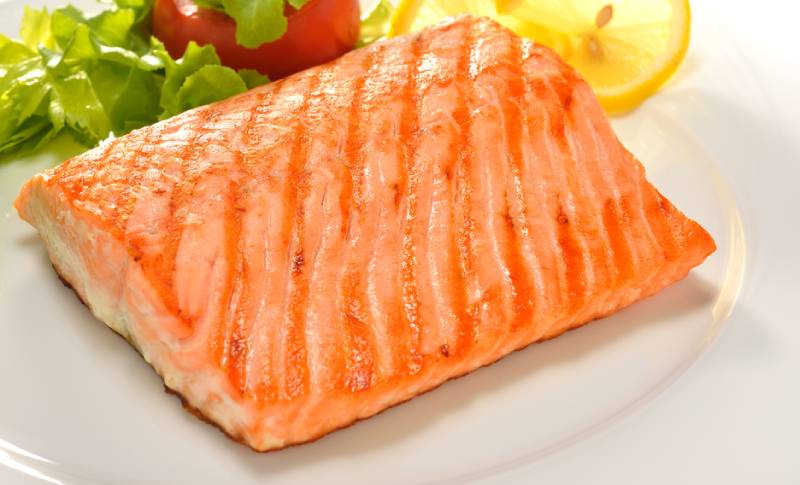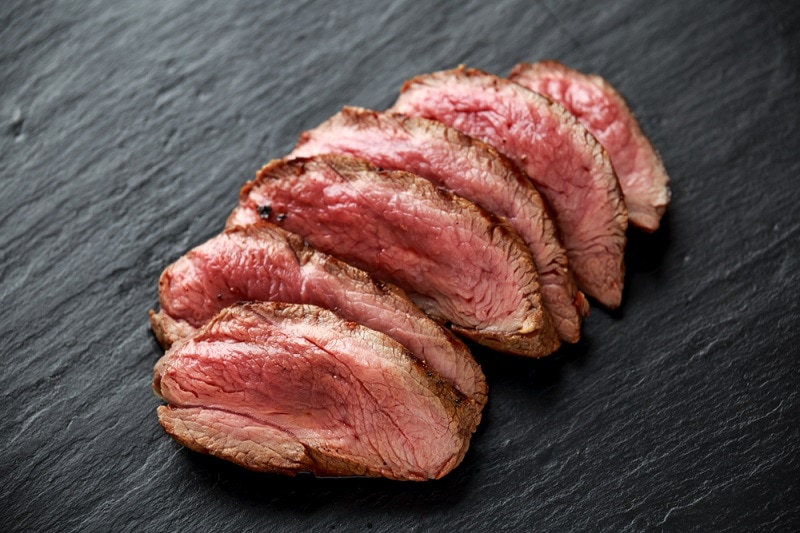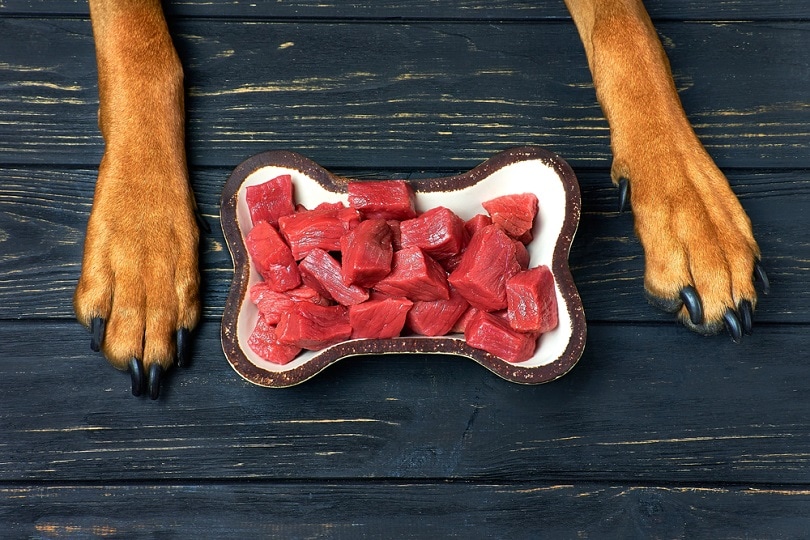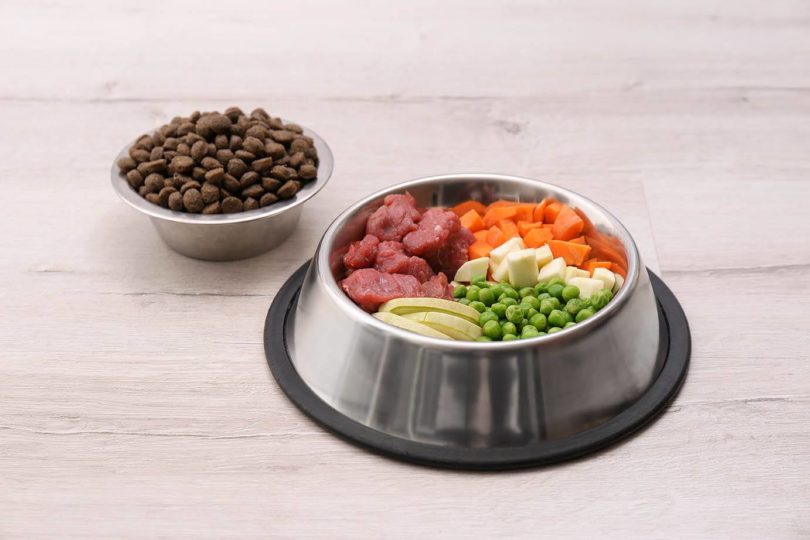Dogs can thrive on both meat and plant-based foods; however, their ancestors were carnivores that thrived on high-protein diets. Whether you’ve seen high-protein dog food ads or simply want to boost your dog’s protein intake, understanding the best protein sources is essential. Many pet owners even explore homemade or raw food diets to ensure optimal nutrition.
Below, we delve into everything you need to know about protein for dogs and introduce you to six premium protein sources that can enhance your dog’s health.

Why Do Dogs Need Protein?
Protein is a critical nutrient for dogs—it’s essential for survival, growth, and overall well-being. Animal protein, or complete protein, contains amino acids that help develop your dog’s skin, muscles, and joints. This nutrient not only supports bodily functions but also ensures your dog stays strong and healthy.
6 Best Protein Sources for Dogs
If you’re looking to add a protein supplement to your dog’s diet or craft a balanced homemade recipe (with your veterinarian’s approval), knowing your options is key. Here are six top-quality protein sources along with their benefits for your canine companion.
1. Eggs

Eggs are an excellent and safe protein source for dogs, as endorsed by the American Canine Club. While eggs might not provide all the nutrients for a daily diet, they make great treats or standalone snacks. Dogs can enjoy various bird eggs, including:
- Chicken eggs
- Duck eggs
- Quail eggs
Each egg offers around 6 grams of protein along with vital vitamins and minerals, such as:
- Omega Fatty Acids: Improve skin, coat, and nail health.
- Riboflavin: Helps convert nutrients into energy.
- Folate: Promotes red blood cell production.
- Iron: Essential for hemoglobin synthesis.
- Selenium: Supports thyroid function and DNA replication.
- Vitamin B12: Protects nerves and cells.
- Vitamin A: Boosts immunity and vision health.
Note: Some dogs may be sensitive to eggs, and raw, unpasteurized eggs should be avoided due to the risk of salmonella.
2. Fish

Fish is a beneficial protein source that can easily be incorporated into your dog’s diet. Certain fish provide high protein with low fat—ideal for dogs needing a moderate calorie intake. Delicious fish options include:
- Flounder
- Whitefish
- Salmon
- Cod
- Bass
In addition to protein, fish are rich in:
- Phosphorus: For strong bones and a healthy metabolism.
- Omega-3 Fatty Acids: Promote healthy skin, coat, and joints.
- Iron: Aids in hemoglobin production.
- Zinc: Supports immune function and metabolism.
- Iodine: Crucial for proper thyroid function.
Note: Monitor for potential fish allergies and never feed your dog raw fish.
3. Poultry

Poultry is a lean white meat rich in protein and can be steamed or boiled for your dog. Popular poultry choices include:
- Chicken
- Turkey
- Duck
Chicken and turkey are excellent protein sources with lower fat content compared to red meats, making them ideal for dogs that need weight management. Key benefits of poultry include:
- Phosphorus: Works with calcium to maintain bone and tooth integrity.
- Potassium: Supports heart, nerve, and muscle functions.
- Pantothenic Acid: Aids in breaking down fats.
- Choline: Precursor for neurotransmitters.
- Iron: Necessary for hemoglobin production.
Note: Some dogs might be sensitive to poultry proteins, so observe for any allergic reactions.
4. Venison

For the hunting enthusiasts, fresh venison is a lean, hormone-free red meat that serves as an excellent protein source for your dog. Venison options include:
- Deer
- Elk
Venison is a healthy alternative to high-fat red meats and is particularly beneficial for dogs with common protein allergies, as it is considered a novel protein. Its nutritional highlights include:
- Iron: Supports hemoglobin synthesis.
- Phosphorus: Aids in building strong bones and muscles.
- Potassium: Vital for nerve and muscle function.
- Niacin: Promotes healthy digestion and skin.
5. Red Meat

Most red meats are nutritious and beneficial for dogs, though high fat content can be a concern. Lean red meat is preferable. Suitable red meat choices include:
- Lamb
- Beef
- Bison
Red meat provides complete protein for muscle growth and joint support, and it’s rich in:
- Iron: A precursor for hemoglobin.
- Phosphorus: Essential for bone strength and metabolism.
- Potassium: Supports proper nerve and muscle function.
- Selenium: Important for thyroid health.
- Zinc: Aids in metabolism and immune support.
Note: Novel proteins like bison can be especially useful for dogs with allergies to more common protein sources.
6. Plant Protein

Occasionally, plant proteins can be a supplementary addition to your dog’s diet. However, dogs cannot rely solely on plant protein, as these sources are not complete and may lack essential amino acids. Research is still ongoing regarding the impact of large amounts of legumes in grain-free commercial dog foods and their potential link to canine dilated cardiomyopathy.
Plant protein sources you might consider include:
- Peas
- Lentils
- Chickpeas
Plant proteins also provide fiber, which supports healthy digestion. Use them sparingly, as some dogs may have allergies or sensitivities to certain plant-based proteins.

Vegan or Vegetarian Dogs: What Does It Mean for Their Health?
If you’re an environmentally conscious pet owner who avoids animal products, you might consider a vegan diet for your dog. However, studies show that while it’s possible to create balanced vegetarian or vegan recipes, these diets may not be optimal for your dog’s overall health. When excluding animal protein, extreme caution is necessary to ensure that your dog receives all essential nutrients.
Even if you have reservations about animal products, a natural diet that includes animal protein might be the best choice. If ethical concerns drive your decision, consult with your veterinarian to find the most appropriate vegetarian or vegan options for your dog.

Final Thoughts
Protein is a vital and beneficial component that forms the cornerstone of your dog’s diet—whether it’s commercial or homemade dog food. Now that you know the range of protein sources available, you can choose from a variety of animal and plant proteins that offer unique nutritional benefits. Always have your homemade recipes reviewed by your veterinarian to ensure optimal nutrition for your beloved pet.
See also:


